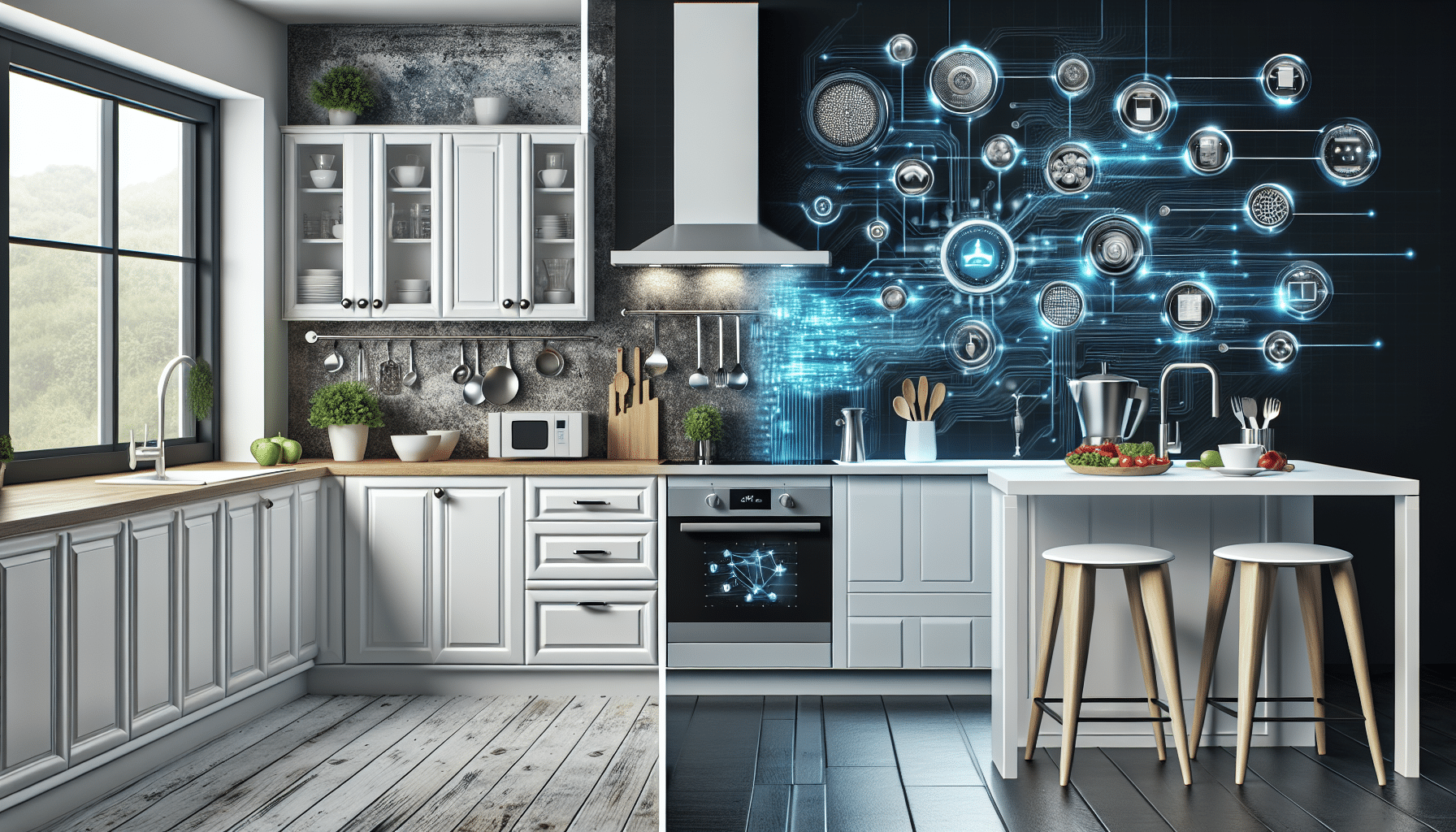In a change that promises to revolutionize the way we understand the heart of the home, the trend of smart kitchens is gaining momentum and leaving behind some of the more traditional features. The pristine white and tall cabinets that have dominated for decades are being replaced by more functional and technological designs, adapted to the needs and rhythms of contemporary life.
Interior designers and technology experts agree that the kitchens of the near future will be fully optimized spaces for efficiency and intelligence. Instead of the classic tall cabinets that often hindered access to stored items, lower and more accessible storage systems are being implemented, with retractable drawers and modular shelves that make organization easier and more comfortable. These new systems allow every square inch to be used more effectively, while reducing physical effort, making the kitchen more inclusive for people of all ages and abilities.
Technology plays a central role in this transformation. Smart appliances, equipped with voice assistants and integrated with smartphone apps, simplify tasks that previously required time and effort. Refrigerators that send notifications about expiring products, ovens that can be programmed remotely, and lighting systems that adjust their intensity according to the time of day are just some of the innovations that are redefining the culinary space. In addition, kitchen surfaces with wireless chargers and integrated touchscreens allow users to follow recipes in real time or manage grocery lists without leaving the kitchen.
The trend change also advocates for a warmer and more diverse color palette than the ubiquitous white. Soft grays, earth tones, and natural shades are becoming more popular, creating a cozier and less clinical environment. The integration of natural materials such as wood, stone, and metal not only provides aesthetics but also durability and sustainability, aspects increasingly valued by consumers.
In this evolution towards the kitchen of the future, there is also a noticeable effort to make these spaces more sustainable. Energy-efficient appliances and advanced waste management systems are being incorporated to reduce environmental impact. For example, certain smart kitchens include integrated composters that turn organic waste into fertilizer, promoting a cycle of conscious and responsible consumption.
The change is not limited to home kitchens; it is also impacting restaurants and commercial spaces, where space optimization and operational efficiency are crucial. These advances not only improve the user experience but also enable greater culinary creativity by freeing up time and space for experimentation.
In conclusion, the era of smart kitchens has arrived, offering a perfect combination of functionality, technology, and design. Goodbye to white and classic tall cabinets; hello, kitchens that think for you and make every moment spent at the stove easier.
Referrer: MiMub in Spanish












